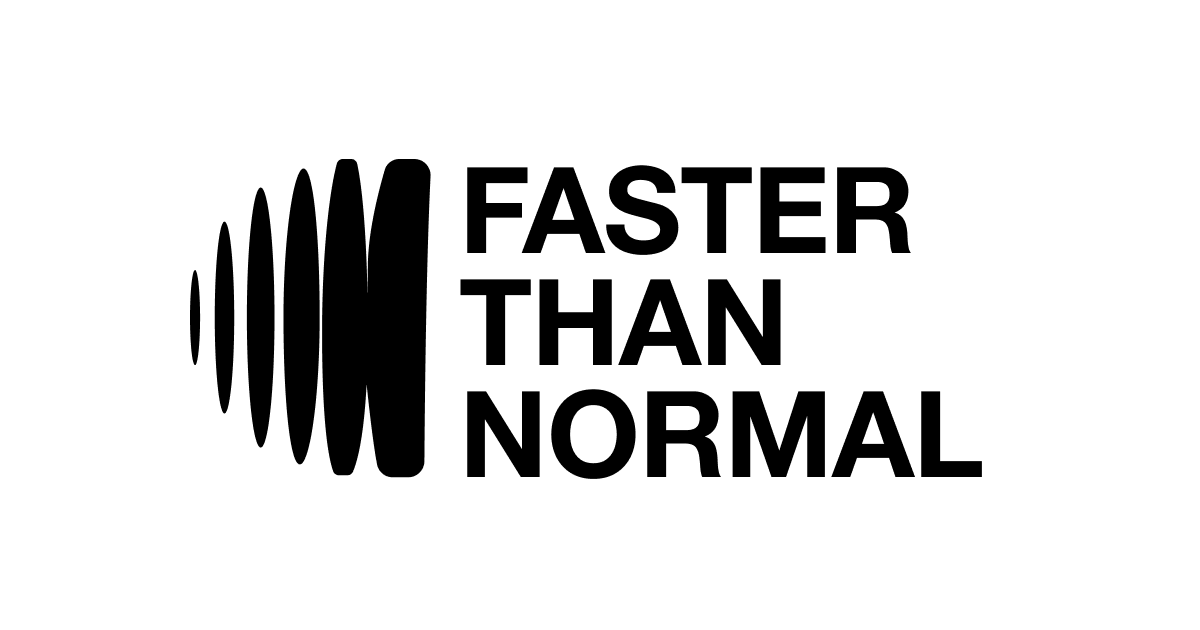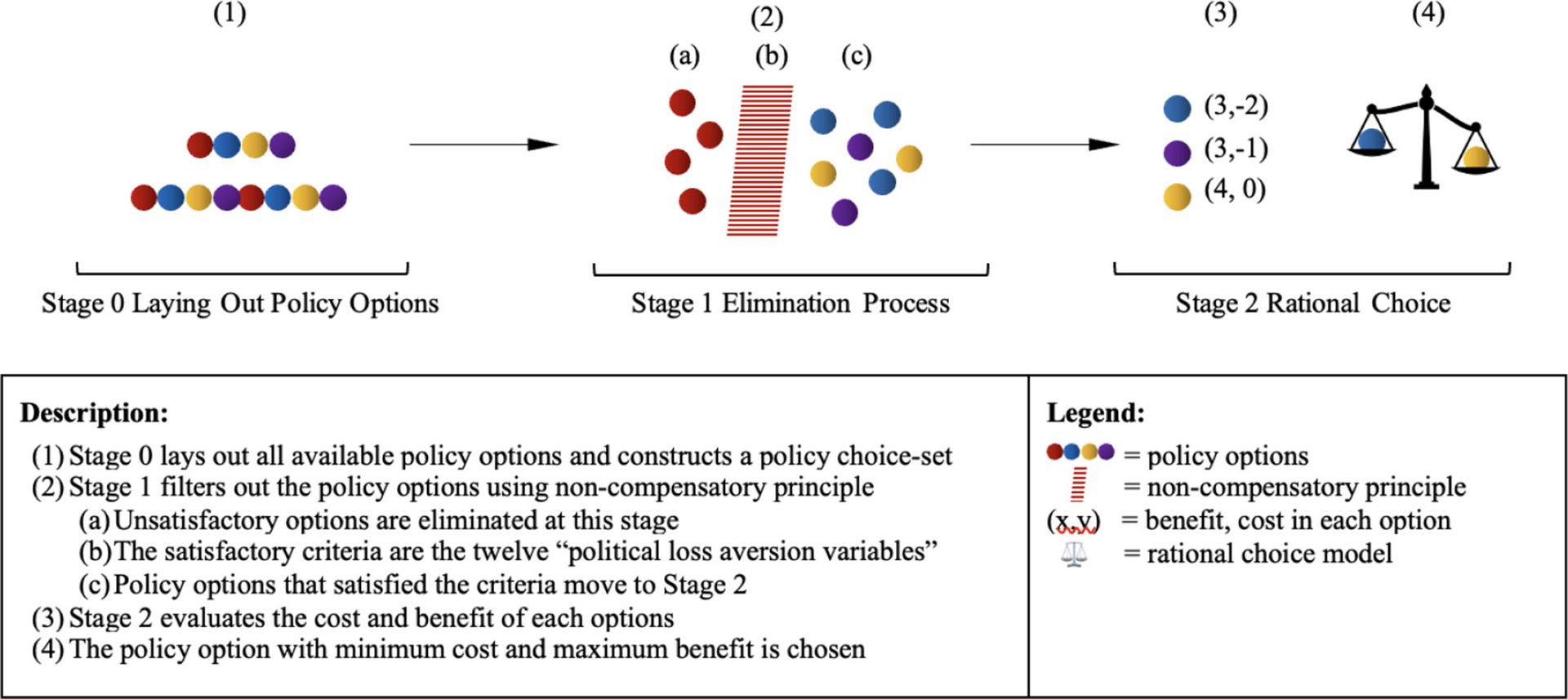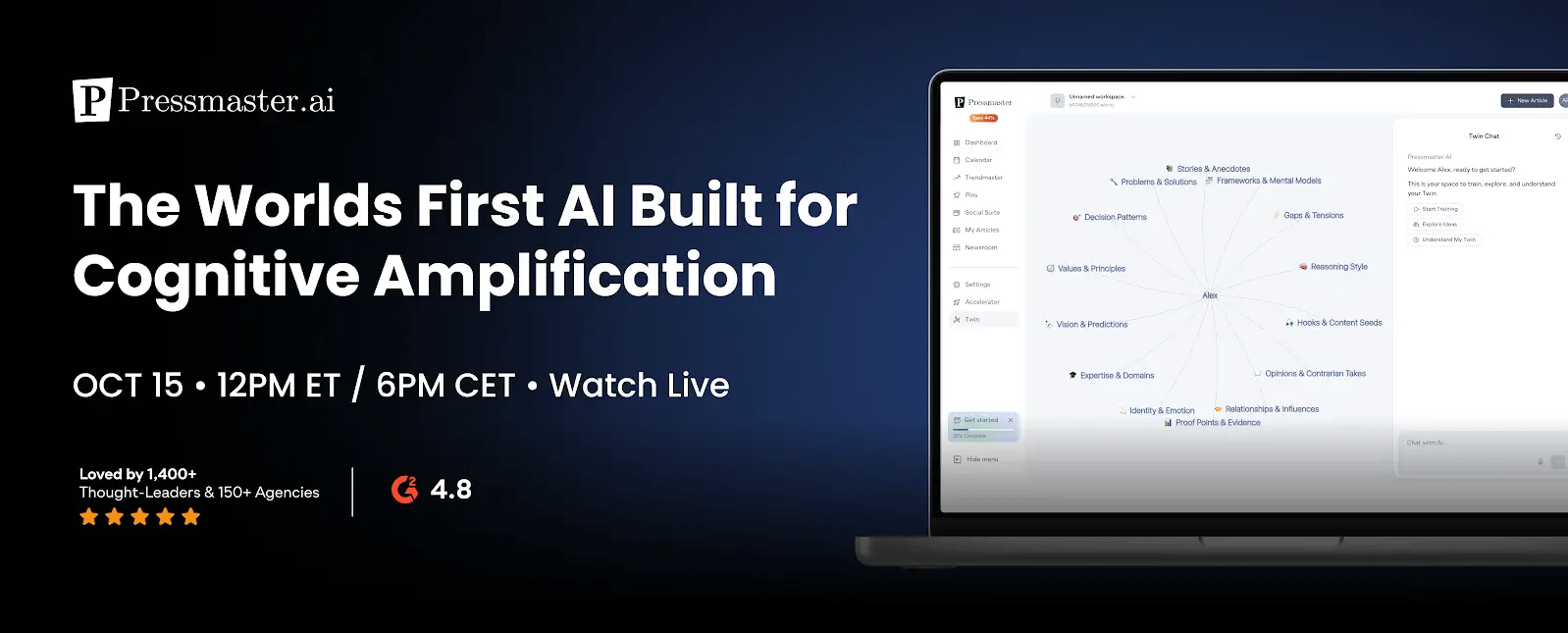October 15, 2025
•
[rtime]
mins
Rose Blumkin, Poliheuristic Decision Theory and Habits of Highly Effective Leaders
At a glance

This edition is brought to you by Pressmaster.ai
Good morning to all new and old readers! Here is your Wednesday edition of Faster Than Normal, exploring one short story about a person, a company, a high-performance tool, a trend I’m watching closely, and curated media to help you build businesses, wealth, and the most important asset of all: yourself.
If you enjoy this, feel free to forward it along to a friend or colleague who might too. First time reading? Sign up here.
Today’s edition:
> Stories: Rose Blumkin & Fitbit
> High-performance: Poliheuristic Decision Theory
> Insights: Ideas require real execution
> Tactical: Habits of highly effective leaders
> 1 Question: Unbound creativity
Cheers,
Alex
P.S. Send me feedback on how we can improve. I respond to every email.
Stories of Excellence
Person: Rose Blumkin
Rose Blumkin, known as "Mrs. B," was a Russian immigrant who founded Nebraska Furniture Mart in 1937 with $500. She built it into the largest furniture store in North America. Buffett bought the company in 1983 for $60 million. Mrs. B's business philosophy was simple: "Sell cheap and tell the truth." She worked tirelessly, often sleeping on a cot in the store. Despite never learning to read or write English, she had an uncanny ability to calculate complex figures in her head. Her work ethic was legendary. She continued working until age 103. "I come back to work every day because this is my baby and I want to see it grow up," she once said. Mrs. B's story is a testament to the American dream and the power of determination.
Key Lessons from Rose Blumkin:
On simplicity: "Sell cheap and tell the truth, don't cheat nobody, and don't take no kickbacks."
On work ethic: "I come home to eat and sleep, and that's about it. I can't wait until it gets daylight so I can get back to the business."
On longevity: She worked until age 103, showing that passion for one's work can sustain a lifelong career.
Company: Fitbit
Fitbit was founded in 2007 by James Park and Eric Friedman, two entrepreneurs with backgrounds in technology and finance. The idea struck when Park struggled to lose weight and realized the potential of wearable tech for fitness tracking. They raised $400,000 from friends and family to build their first prototype. In 2009, Fitbit launched its first device at TechCrunch50. The company quickly gained traction, securing $8 million in Series A funding in 2010. Fitbit's growth exploded, leading to an IPO in 2015 that valued the company at $4.1 billion. Despite facing competition from tech giants, Fitbit maintained its market position until its acquisition by Google for $2.1 billion in 2021.
Key Lessons from Fitbit:
On timing: Launch before you're ready. Fitbit's first device was buggy and limited. But it was enough to prove the concept and attract early adopters. Park said, "We knew we had to get something out there quickly."
On data: Make numbers fun. Fitbit turned boring health stats into a game. People got hooked on hitting their daily goals. Addictive.
On community: Build a tribe. Fitbit's social features let users compete with friends. It tapped into our innate desire for competition and belonging.
The Future of AI Communication Starts Here
Every day great ideas fade because turning complex thinking into clear communication takes time most people do not have.
Pressmaster.ai changes that. It captures how you think, amplifies it into powerful communication, and shares it in your authentic voice.
This is not about writing faster. It is about thinking louder.
Join us on October 15 at 12 PM ET or 6 PM CET for The Worlds First AI Built for Cognitive Amplification.
Discover how one short conversation becomes thirty days of strategic and market ready content.
Be part of the launch of a new category where AI becomes part of your cognitive architecture.
Accelerants
High-performance tool
⎯
Poliheuristic Decision Theory
People apply heuristic shortcuts in their initial consideration of decision options but act rationally thereafter.

We use mental shortcuts to decide what’s possible, and then use an expected utility or cost-benefit analysis to decide what’s best.
Insights
Larry Page on combining invention and innovation:
"Invention is not enough. Tesla invented the electric power we use, but he struggled to get it out to people. You have to combine both things: invention and innovation focus, plus the company that can commercialize things and get them to people."—Larry Page, cofounder of Google
Tactical reads
⎯
> When studying the habits of highly effective leaders
How to be an Effective Executive (Read it here)
> When learning time management tips from busy professionals
Time Management Tips of Insanely Busy People (Read it here)
1 question
If you could spend 30 minutes today creating whatever you want, what would you create?
That’s all for today, folks. As always, please give me your feedback. Which section is your favourite? What do you want to see more or less of? Other suggestions? Please let me know.
Have a wonderful rest of week, all.
Recommendation Zone
⎯
Build Global Teams, Save Smart
Hiring remote talent has been one of the most impactful decisions I’ve made, supporting everything from marketing and customer support to operations and admin.
I’ve used Athyna, a global talent platform that helps companies quickly hire top professionals from talent-rich regions like Latin America, Southeast Asia, and Africa — often delivering up to 70% cost savings. They move fast (under 5 days), and cover roles across engineering, marketing, design, and ops.
Athyna sources talent from companies like Facebook, Uber, Zoom, and Salesforce, so you’re not sacrificing quality, just unlocking global efficiency. Highly recommend giving them a look.


Alex Brogan
Find me on X, LinkedIn, YouTube, Instagram, TikTok
Offshore Talent: Where to find the best offshore talent. Powered by Athyna.
Why Faster Than Normal? Our mission is to be a friend to the ambitious, a mentor to the becoming, and a partner to the bold. We achieve this by sharing the stories, ideas, and frameworks of the world's most prolific people and companies—and how you can apply them to build businesses, wealth, and the most important asset of all: yourself.
Faster Than Normal is a ‘state' of being’ rather than an outcome. Outlier performance requires continuous, compounded improvement. We’re your partner on this journey.
Send us your feedback and help us continuously improve our content and achieve our mission. We want to hear from you and respond to everyone.

Interested in reaching Founders, Operators, and Investors like you? To become a Faster Than Normal partner, apply here.
.png)

.png)